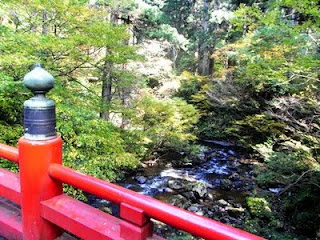Carpe Diem Haiku Kai Celebrates Its 9th Anniversary: #1852 Out In The Fields
Dear Haijin, visitors and travelers,Welcome at a new episode of our Haiku Kai's celebration month, October 2021. We are celebrating our 9th anniversary with a "trip along memory lane" and today I have (another) nice episode in which we look back into our rich history.As you all know there are several features here on CDHK and today I have a nice one. I don't know if you remember this special feature, but back in time it was one of my better creations "Carpe Diem's Time Travel, Ancient Japanese Poetry To Inspire You".Let me give you a piece of one of the episodes of "Time Travel":[...] In the Hyakunin-isshu are themes such as nature, the round of the seasons, the impermanence of life, and the vicissitudes of love. There are obvious Buddhist and Shinto influences throughout.An example of the Tanka in Hyakunin-isshu created by Emperor Tenchi (7th century):Aki no ta noKari ho no iho noToma wo aramiWaga koromode waTsuyu ni nure-tsutsu.OUT in the fields this autumn dayThey're busy reaping grain ;I sought for shelter ’neath this roof,But fear I sought in vain,—My sleeve is wet with rain.A very nice Tanka I would say. It's written in a very sophisticated style that fits the Emperor. I especially like the rhyme in the last two lines. As you all know (maybe), it is "not done" to use rhyme in Tanka, but in this one it seems that it had to be that way. It gives the Tanka "style". [...]Mount YudanoThe above tanka brought a (not so well known) haiku by Basho in mind.katara re nu yudano ni nurasu tometo kanaforbidden to sayhow sleeves are wettedin the bathroom© BashoMount Yudano was a sacred and secrative place for the Shinto sect. More about this haiku by Basho you can find at Basho Revisited, one of my other personal weblogs.There are a lot of haiku (and tanka) in which several myths and secrets are hidden. For example in a lot of haiku and tanka the poets hide sexuality and the beauty of human body.So for this episode I love to challenge you to create a haiku or tanka in which you hide sexuality and the beauty of the human body. I will give you an example, which you maybe remember:what has happened?petals of red roses aroundthe morning glory© Chèvrefeuille (2012)"Morning glory" points to a certain male part. So in this haiku you find hidden sexuality and the beauty of the human body.This episode is NOW OPEN for your submissions and will remain open until October 24th at 10:00 PM (CEST). You can add your submission to the linking widget hidden in our logo below.

Dear Haijin, visitors and travelers,
Welcome at a new episode of our Haiku Kai's celebration month, October 2021. We are celebrating our 9th anniversary with a "trip along memory lane" and today I have (another) nice episode in which we look back into our rich history.
As you all know there are several features here on CDHK and today I have a nice one. I don't know if you remember this special feature, but back in time it was one of my better creations "Carpe Diem's Time Travel, Ancient Japanese Poetry To Inspire You".
Let me give you a piece of one of the episodes of "Time Travel":
[...] In the Hyakunin-isshu are themes such as nature, the round of the seasons, the impermanence of life, and the vicissitudes of love. There are obvious Buddhist and Shinto influences throughout.
An example of the Tanka in Hyakunin-isshu created by Emperor Tenchi (7th century):
Aki no ta no
Kari ho no iho no
Toma wo arami
Waga koromode wa
Tsuyu ni nure-tsutsu.
OUT in the fields this autumn day
They're busy reaping grain ;
I sought for shelter ’neath this roof,
But fear I sought in vain,—
My sleeve is wet with rain.
A very nice Tanka I would say. It's written in a very sophisticated style that fits the Emperor. I especially like the rhyme in the last two lines. As you all know (maybe), it is "not done" to use rhyme in Tanka, but in this one it seems that it had to be that way. It gives the Tanka "style". [...]
 |
| Mount Yudano |
The above tanka brought a (not so well known) haiku by Basho in mind.
katara re nu yudano ni nurasu tometo kana
forbidden to say
how sleeves are wetted
in the bathroom
© Basho
Mount Yudano was a sacred and secrative place for the Shinto sect. More about this haiku by Basho you can find at Basho Revisited, one of my other personal weblogs.
There are a lot of haiku (and tanka) in which several myths and secrets are hidden. For example in a lot of haiku and tanka the poets hide sexuality and the beauty of human body.
So for this episode I love to challenge you to create a haiku or tanka in which you hide sexuality and the beauty of the human body. I will give you an example, which you maybe remember:
what has happened?
petals of red roses around
the morning glory
© Chèvrefeuille (2012)
"Morning glory" points to a certain male part. So in this haiku you find hidden sexuality and the beauty of the human body.
This episode is NOW OPEN for your submissions and will remain open until October 24th at 10:00 PM (CEST). You can add your submission to the linking widget hidden in our logo below.

What's Your Reaction?































